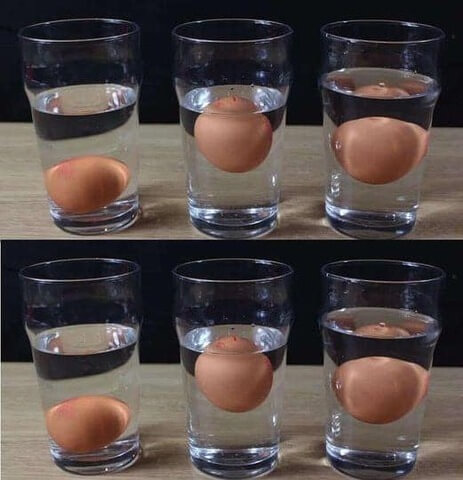Fresh Eggs or Fowl Play? Your Guide to Checking Egg Freshness
It’s wonderful to purchase fresh eggs directly from the farm, but how can you be certain they’re still good? You’re not alone in this egg-cellent predicament, so don’t panic! I’ve tried innumerable techniques, but I’ve found a few reliable ways to tell if your eggs are fresh or about to expire.
Why the Water Test Is a Classic
One of the oldest and most trustworthy methods for determining the freshness of eggs is still this one. This is how it operates:
Pour water into a glass or bowl: Verify the water’s coldness.
Lower the egg gently: The egg should be submerged in water.
Note:
Fresh eggs: Lay flat on their side after sinking to the bottom.
Less fresh eggs: Stand on one end but sink to the bottom.
Old eggs: Rise to the top.
Additional Indicators of Freshness
Although the water test is an excellent place to start, there are additional indicators to take into account:
Shell appearance: The shell of a fresh egg should be smooth, clean, and devoid of cracks or fissures.
Consistency of egg white: In a bowl, crack a fresh egg. There should be a noticeable yolk and a thick, transparent white. The egg may be older if the yolk is flat or the white is watery.
Smell: The smell of fresh eggs should be minimal. An overpowering, disagreeable odor is an obvious indication of spoiling.
How to Store Eggs to Preserve Their Freshness
To keep eggs fresh, proper storage is essential. Here are some pointers:
Refrigerate: Keep eggs refrigerated in their original carton.
Don’t wash: Bacteria can enter when the shell’s protective layer is removed during washing.
Use within a few weeks: Use eggs within a few weeks of purchase for best freshness.
You don’t have to worry about the freshness of your farm-fresh eggs if you follow these easy steps and storage advice.

